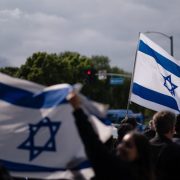Today is Canada Day, the day when Canadians celebrate the anniversary of our confederacy.
Actually, maybe it’s more accurate to say: today is Canada Day—the day when Canadians are supposed to celebrate the anniversary of our confederacy.
Though most Canadians are still eager to celebrate Canada Day, more than ever—many others are eager to cancel it. A growing number of Canadians are more determined to condemn Canada than they are celebrate it.
For that reason, some of the biggest gatherings in Canada today will be for “Cancel Canada Day” marches. This year, the biggest topic on Canada Day is whether Canada is worth celebrating.
Some Canadians—particularly a vocal minority of indigenous Canadians—have protested Canada Day for many years. However, their protests have gained considerably more support recently—especially after the discovery of unmarked graves at a former indigenous residential school in British Colombia several weeks ago.
The unmarked graves contained the remains of 215 indigenous children.
Since then, an additional 182 unmarked graves of indigenous people have been discovered at another former residential school in British Colombia. And possibly, another 751 unmarked graves may have also been found in Saskatchewan.
The residential school system was established by the Canadian government in the 19th century and implemented by the Catholic Church and some of the major Christian denominations in Canada. The residential school system was designed to compel indigenous children to assimilate into Canadian culture, including converting to Catholicism or Christianity.
Over 150,000 thousand indigenous children were forcibly stripped from their parents and handed over to strangers in boarding schools. Thousands of indigenous children suffered malnourishment, physical and sexual abuse, and death.
The discovery of the unmarked graves is prompting many Canadians to believe Canada might not be deserving of celebration.
For instance, one of the biggest media outlets in Canada, The Toronto Star, published three separate articles yesterday encouraging Canadians to cancel or quiet their Canada Day celebrations.
And many politicians—including our prime-minister, Justin Trudeau—have suggested this Canada Day should be “a time of reflection”.
Trudeau said:
“[This Canada Day, we will celebrate the great things about this country but we will mostly reflect on the work that we all have to do as individuals and as institutions to be better…That’s what this Canada Day, I think, will be about for a lot of families. It’s certainly what it’s going to be about for my family.”
Trudeau’s rhetoric suggests support for cancelling Canada Day isn’t merely about support for indigenous Canadians, it’s also about support for critical race theory.
Like 54% of Canadians, Justin Trudeau believes Canada is systemically racist—though he’s the leader of the system.
The discovery of the unmarked graves isn’t the only basis for why many Canadians condemn Canada. As the aforementioned data suggests—data affirmed by an article I’ll publish next week about critical race theory in Canadian schools—critical race theory is a significant part of the reason why many Canadians have become allies with radical indigenous activists like Idle No More on cancelling Canada Day.
One of the most notable critical race theorists in Canada, University of Toronto professor Akwasi Owusu-Bempah, recently said:
“Canada is having a reckoning with its history. I don’t think we can celebrate this country for what it is without recognizing this country for what it isn’t: a utopia and a bastion of equality and freedom and equal opportunity for all members of society.”
Like many Canadians, I’m deeply disappointed in Canada. I believed this nation was better than it really is.
When I was a boy in Ghana, I believed Canada was like heaven. Since Canada was at the top of the world map, I believed Canada was a massive land in the sky—a massive land near heaven.
But that was over 20 years ago. Today, I’m deeply grieved by what is happening in Canada. I am disturbed by this nation’s past. But I am even more disturbed by its present and it’s apparent future.
It grieves me that Canada oppressed indigenous people. It grieves me that we’re discovering hundreds of unmarked graves. But it grieves me all the more that we bury over 100,000 aborted children in garbages every year.
It grieves me that though Canada’s first prime-minister said abortion “saps the very lifeblood of a nation”, our current prime-minister says pro-abortion organizations around the world “will always have an ally and a defender in Canada.”
I’m disappointed that although Canada’s official motto (“A mari usque ad mare”) is taken directly from Psalm 72, which says: [God] shall have dominion also from sea to sea, and from the river unto the ends of the earth”—today, Canada arrests and imprisons pastors who practise that motto.
And yet Canada’s good founding principles is why I love this country more today than I ever have. I know more than ever, what this nation is supposed to be. I know what it used to pray and sing to God for.
Earlier this week, in a conversation about Ghana and Canada, my mom said—as she always does—Canada is a gift from God. And she’s right.
Canada isn’t what I believed it was when I first arrived here: it isn’t heaven. And it isn’t what some Canadians seem to believe it is either: it isn’t hell.
Canada isn’t a heaven or a hell—it’s home. It’s a home with an imperfect past, an imperfect present, an imperfect future. It’s my home, and I’m grateful. That is why I am not canceling Canada Day.
Happy Canada Day to you all.

